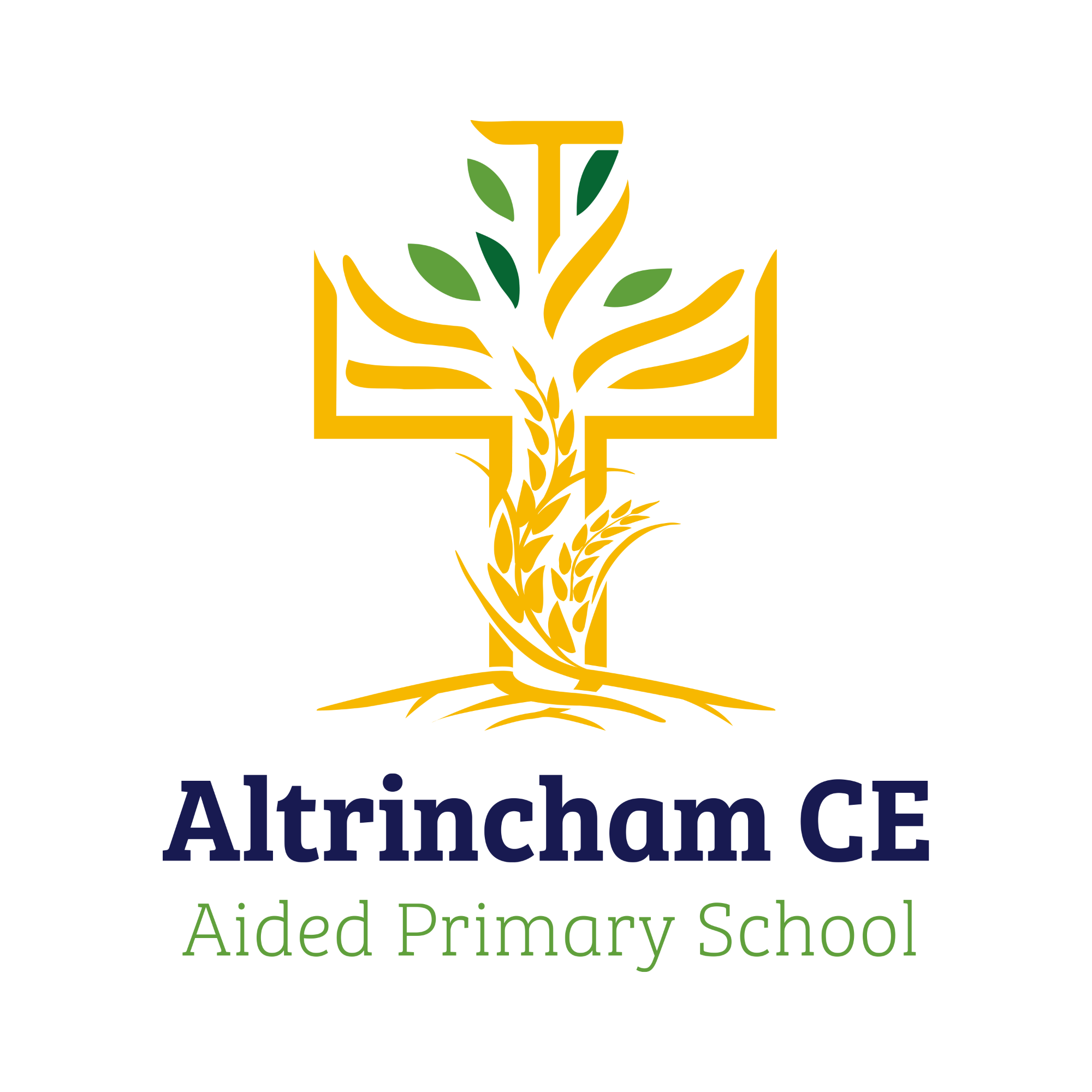History
At Altrincham CE Primary School, we recognise the importance in helping children gain a coherent knowledge and understanding of Britain’s past and that of the wider world. We strive to inspire children’s curiosity to know more about the past.
History teaching equips children to ask perceptive questions, think critically, weigh evidence, sift arguments, and develop perspective and judgement.
History helps our children to understand the complexity of people’s lives, the process of change, the diversity of societies and relationships between different groups, as well as their own identity and the challenges of their time.
We aim for our children to:
- Know and understand the history of these islands as a coherent, chronological narrative, from the earliest times to the present day.
- Know how people’s lives have shaped this nation and how Britain has influenced and been influenced by the wider world.
- Know and understand a local perspective to the history of Britain.
- Know and understand significant aspects of the history of the wider world.
- Understand key historical concepts.
- Develop methods of historical enquiry, including how evidence is used rigorously to make historical claims, and discern how and why contrasting arguments and interpretations of the past have been constructed.
- Gain historical perspective by placing their growing knowledge into different contexts: understanding the connections between local, regional, national and international history; between cultural, economic, military, political, religious and social history; and between short- and long-term timescales.
The concepts we teach:
- Investigating and interpreting the past - Recognising that our understanding of the past comes from an interpretation of available evidence.
- Building an overview of world history - Appreciating the characteristic features of the past and that these features are similar and different across time periods, and an understanding that life is different for different sections of society.
- Understanding chronology - Understanding how to chart the passage of time and how some aspects of history happened at similar times in different places.
- Communicating historically - Using historical vocabulary and techniques to convey information about the past.
These threshold concepts ensure coverage of the key historical concepts laid down in the National Curriculum:
- Chronology (arrangement of events or dates in the order of their occurrence; a coherent narrative of history)
- Cause and effect (Every significant event, development or change is triggered by at least one cause)
- Continuity and change (Exploring, explaining and evaluating what has changed and what has stayed the same. Change over time and continuity in times of change. Continuity is the opposite of change: it is where things stay more or less the same. Historians are interested in change but are mindful that not everything changes. Even during a period of great upheaval, some institutions, traditions and values will remain constant.)
- Significance (The importance of events and the impact of changes. Using the past to provide contemporary lessons impact of these change.)
- Perspective (All events are known and told from the biases of a person, there is no such thing as objective history)
The history curriculum at ACE is carefully planned and structured to ensure that current learning is linked to previous learning and the school’s approaches are informed by current pedagogy.
The skills we teach:
|
Ask perceptive questions |
Weigh evidence
|
Develop perspective and judgement |
Make connections |
Analyse and use sources |
The knowledge we teach:
|
EYFS In EYFS, children talk about past and present events in their own lives and in the lives of family members. They know some reasons why some people’s lives were different in the past. Children begin to:
|
|
Key Stage 1 Through History, children develop an awareness of the past, using common words and phrases relating to the passing of time. They know where the people and events they study fit within a chronological framework and identify similarities and differences between ways of life in different periods. They use a wide vocabulary of everyday historical terms. They ask and answer questions, choosing and using parts of stories and other sources to show that they know and understand key features of events. They understand some of the ways in which we find out about the past and identify different ways in which it is represented. Children are taught about:
|
Key Stage 2
Children continue to develop a chronologically secure knowledge and understanding of local, British and world history, establishing clear narratives within and across the periods they study. They note connections, contrasts and trends over time and develop the appropriate use of historical terms. They regularly address and devise historically valid questions about change, cause, similarity and difference, and significance. They construct informed responses that involve thoughtful selection and organisation of relevant historical information. They understand how our knowledge of the past is constructed from a range of sources.
In planning to ensure the progression described above through teaching the British, local and world history outlined below, we ensure breadth and depth to help children understand both the long arc of development and the complexity of specific aspects of the content.
Children are taught about:
- Aspects of local, British and World history
- Prehistoric Britain – Stone Age, Bronze Age and Iron Age
- Roman Empire and its impact on Britain
- Viking and Anglo-Saxon struggle for the Kingdom of England
- Victorian age and the impact of the Industrial Revolution
- Impact and influence of pioneers, inventors and explorers
- History of the growth of industry in and around Manchester, including the role of railways and canals
- World War Two and the impact on Manchester
- Achievements of ancient civilisations: Ancient Egypt
- Achievements of ancient civilisations: Ancient Greece
- Achievements of ancient civilisations: Golden Age of Baghdad
- Impact of significant individuals in the fight for freedom (e.g. Martin Luther King, JFK, Nelson Mandela, Suffragettes)
